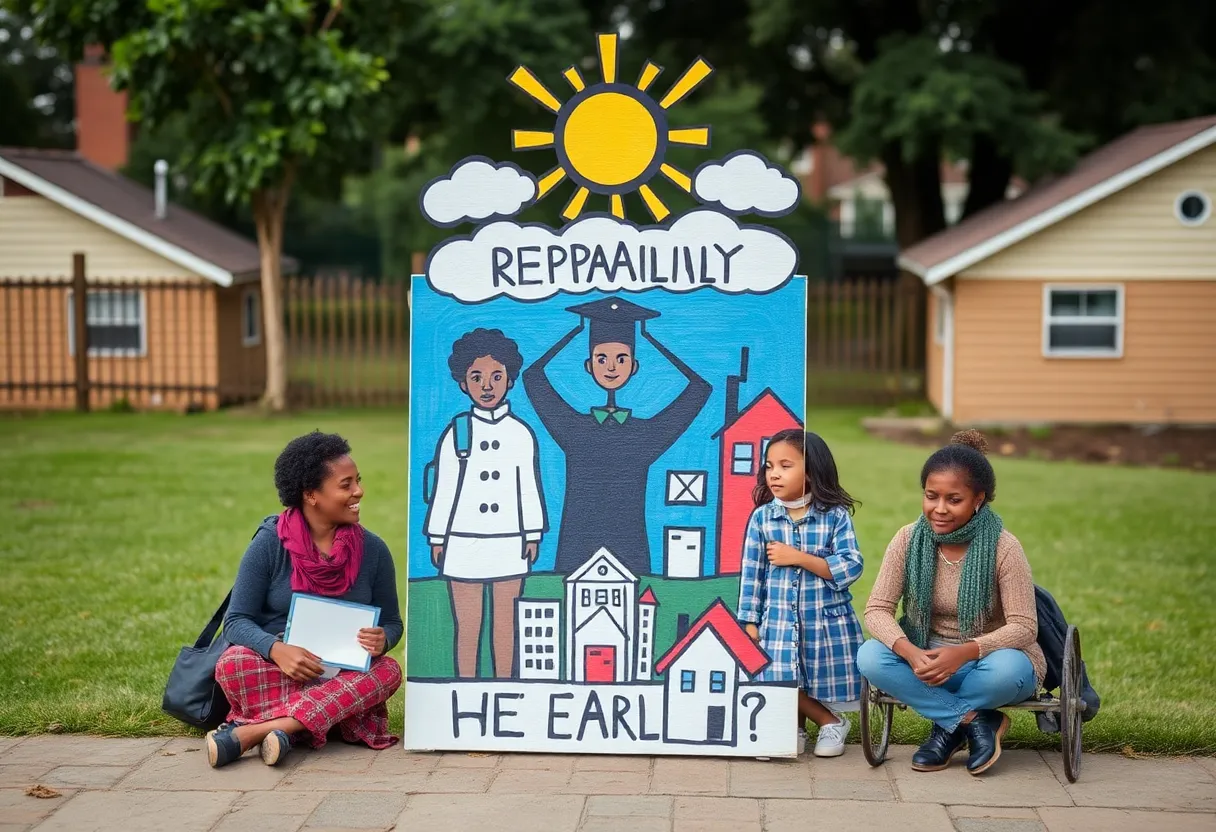News Summary
Tulsa’s first Black mayor has unveiled a groundbreaking reparations plan in response to the 1921 Tulsa Race Massacre. The proposal includes creating the $100 million Greenwood Trust, which aims to empower the descendants of the massacre victims through scholarships and housing assistance. The initiative seeks to revitalize North Tulsa, acknowledging the community’s prolonged struggles due to historical injustices and economic neglect. The plan, which declares June 1 as Tulsa Race Massacre Observance Day, reflects a broader movement for reparations across the U.S., promoting discussions on addressing historical wrongs.
Tulsa’s First Black Mayor Unveils Ambitious Reparations Plan
In a significant step towards addressing historical injustices, Tulsa’s first Black mayor, Monroe Nichols IV, recently revealed a groundbreaking proposal aimed at providing reparations to those affected by the tragic 1921 Tulsa Race Massacre. This plan, announced on June 1, 2025, suggests the creation of a private trust worth $100 million, dubbed the Greenwood Trust, designed to empower descendants of the victims.
Understanding the Greenwood Trust
The Greenwood Trust is named in honor of the once-thriving Greenwood District, often referred to as Black Wall Street before its destruction during the massacre. Mayor Nichols’ plan outlines that the trust will not provide direct cash payments to the descendants or the last two surviving victims of the massacre, both of whom are now aged 110. Instead, the focus is on long-term investments aimed at scholarships and housing assistance.
With a targeted funding goal of $105 million by June 1, 2026, $60 million of that funding is earmarked for revitalizing North Tulsa, a community deeply affected by the massacre and subsequent economic downturn. The remaining $24 million is dedicated to a housing fund specifically supporting the Black community to help improve living conditions.
Addressing Historical Wrongs
Mayor Nichols has described the events of the Tulsa Race Massacre as a devastating chapter in the city’s history. He emphasizes that this dark past has been historically overlooked and is compounded by continued acts of redlining and economic underinvestment. The proposed reparations are seen as a pathway to restoring the economic vitality that the community lost in the aftermath of the massacre, which robbed Tulsa of a potentially prosperous future.
Interestingly, the reparations plan does not require approval from the city council for its inception, although any transfer of city property to the trust would need to be authorized by the council. This streamlined approach could potentially expedite the process of providing necessary support to the affected communities.
A Day of Remembrance
This announcement coincides with the executive order by Mayor Nichols declaring June 1 as Tulsa Race Massacre Observance Day, a solemn occasion marked by various commemorative events aimed at fostering remembrance and dialogue about the massacre and its implications for the present day.
A Broader Context for Reparations
This initiative in Tulsa builds upon the momentum for reparations discussions across the United States. For instance, Evanston, Illinois, launched the first domestic reparations program, offering $25,000 to its Black residents for home repairs and down payments on properties. As national discussions continue, there are varying perspectives on how best to approach reparations, including proposals for direct payments to descendants of enslaved individuals. Recent comments from lawmakers suggest that there’s a desire for broader reparations initiatives moving forward.
Impact on the Community
The overarching aim of Nichols’ reparations plan is to confront the long-lasting impacts of the 1921 massacre on the Black community in Tulsa. By providing educational opportunities and housing solutions, it seeks to pave the way for economic restoration, which is more vital now than ever.
As Tulsa takes this crucial step, it holds a mirror to the nation, encouraging other cities to reflect on their own histories and consider how they, too, can address the lingering scars of racial injustice. The Greenwood Trust’s ambitious proposal paves the way for a brighter future for Tulsa’s Black community, with hopes of restoring lost potential and creating new pathways for generations to come.
Deeper Dive: News & Info About This Topic
- Fox News: Tulsa’s Mayor Proposes $100M Reparations Plan
- New York Times: Tulsa Race Massacre Reparations
- BBC News: Tulsa Reparations Initiative
- NBC News: Tulsa’s New Black Mayor Proposes $100M Trust
- USA Today: Tulsa Black Wall Street Reparations Plan
- Wikipedia: Tulsa Race Massacre
- Google Search: Tulsa Race Massacre Reparations
- Encyclopedia Britannica: Tulsa Race Massacre
- Google Scholar: Tulsa Reparations
- Google News: Tulsa Reparations

Author: STAFF HERE ORLANDO WRITER
ORLANDO STAFF WRITER The ORLANDO STAFF WRITER represents the experienced team at HEREOrlando.com, your go-to source for actionable local news and information in Orlando, Orange County, and beyond. Specializing in "news you can use," we cover essential topics like product reviews for personal and business needs, local business directories, politics, real estate trends, neighborhood insights, and state news affecting the area—with deep expertise drawn from years of dedicated reporting and strong community input, including local press releases and business updates. We deliver top reporting on high-value events such as Orlando International Fringe Theatre Festival, Megacon Orlando, and Central Florida Fair. Our coverage extends to key organizations like the Orlando Economic Partnership and Hispanic Chamber of Commerce Metro Orlando, plus leading businesses in leisure and hospitality that power the local economy such as Walt Disney World Resort, AdventHealth, and Universal Orlando. As part of the broader HERE network, including HEREJacksonville.com, HEREPetersburg.com, HERETallahassee.com, and HERETampa.com, we provide comprehensive, credible insights into Florida's dynamic landscape.




